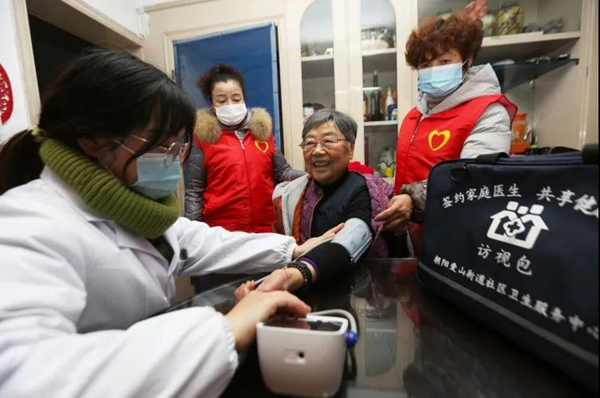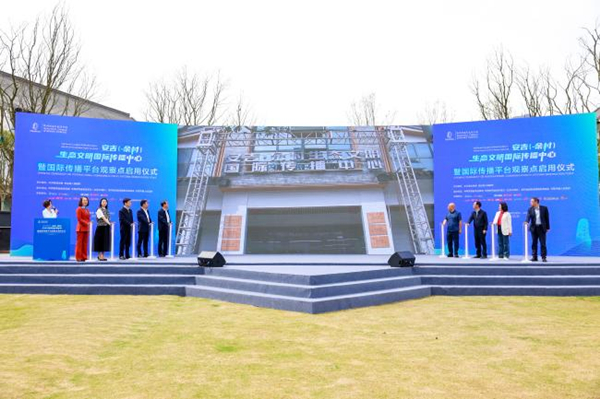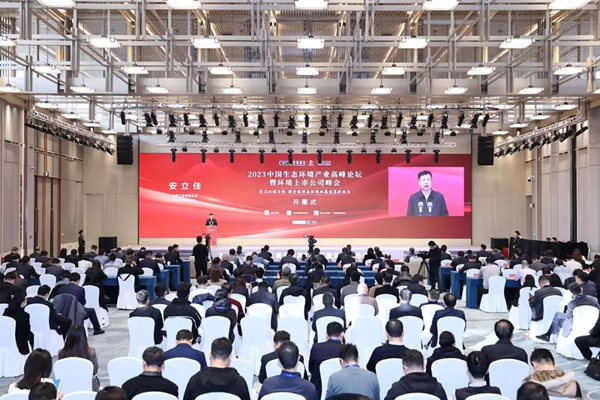Huzhou honored as national model for public health safeguards

A medic performs a physical examination for a senior in Huzhou, East China's Zhejiang province. [Photo/WeChat account: huzhoufabu]
Huzhou in East China's Zhejiang province was recently honored as a national demonstration city for public health safeguards.
The city was conferred the honorary title after it was ranked third nationwide and first in Zhejiang in a national public health work assessment.
The city's main health indicators were deemed to have reached the level of middle- and high-income countries in the world.
The average life expectancy of household-registered residents in Huzhou reached 83.3 years in 2020, attaining the level of advanced countries and an increase of 5.97 years compared with 2010.
The infant mortality rate was 1.57 per 1,000, while the maternal mortality rate was 6.03 per 100,000.
The reported incidence of class A and class B infectious diseases in the city was 124.68 out of 100,000, the second lowest in Zhejiang.
Huzhou has been rated as "excellent" in the provincial public health work assessment for two years in a row.
In addition, the city has been leading the nation in the treatment of plastic waste and household garbage sorting.
It was ranked first among 297 prefecture-level cities in China in a national assessment for household garbage sorting in December 2021.





